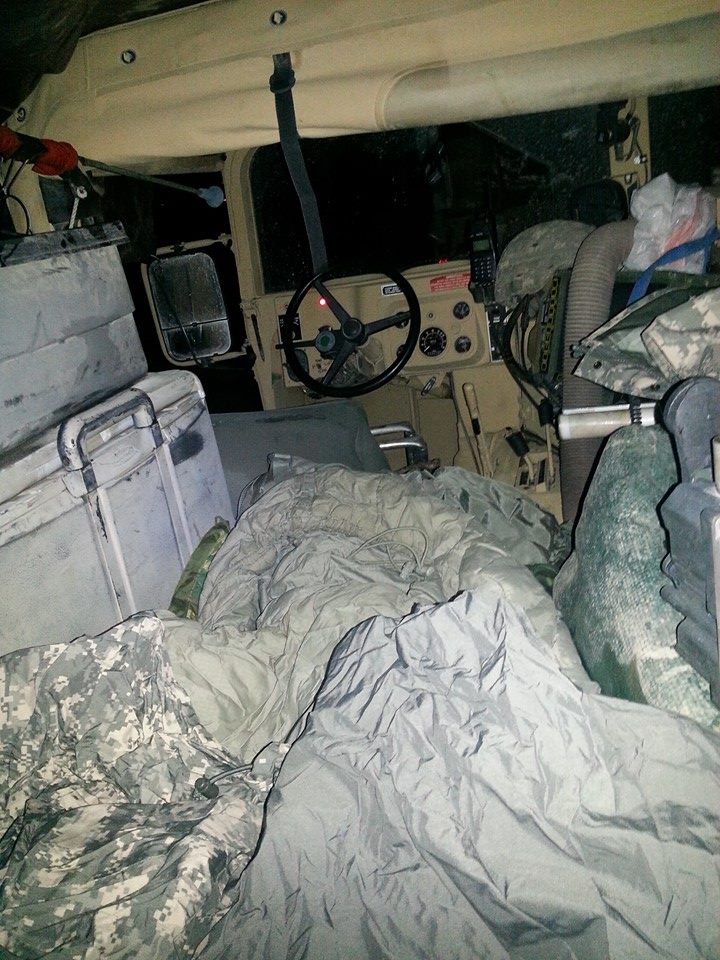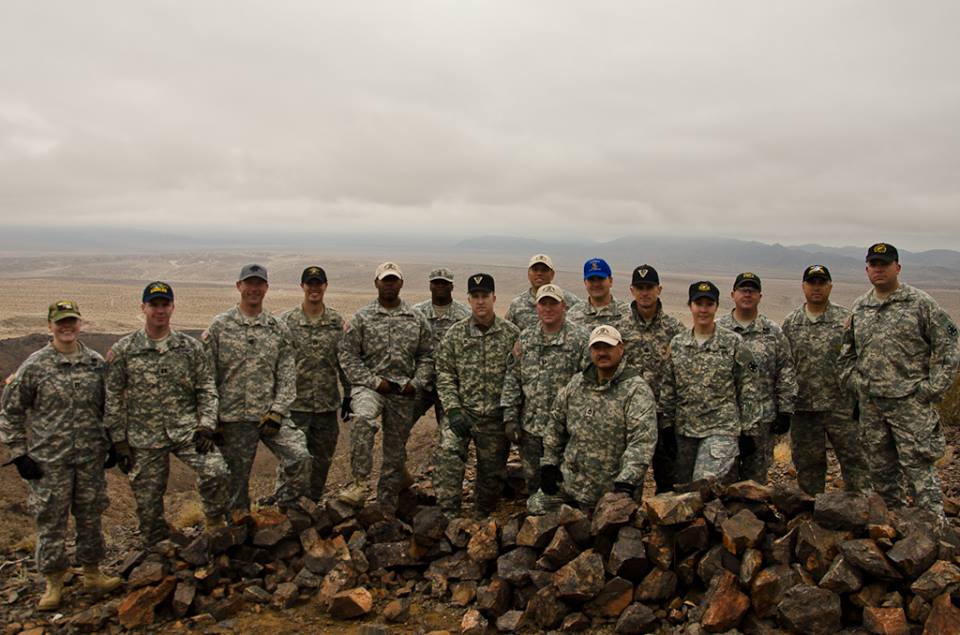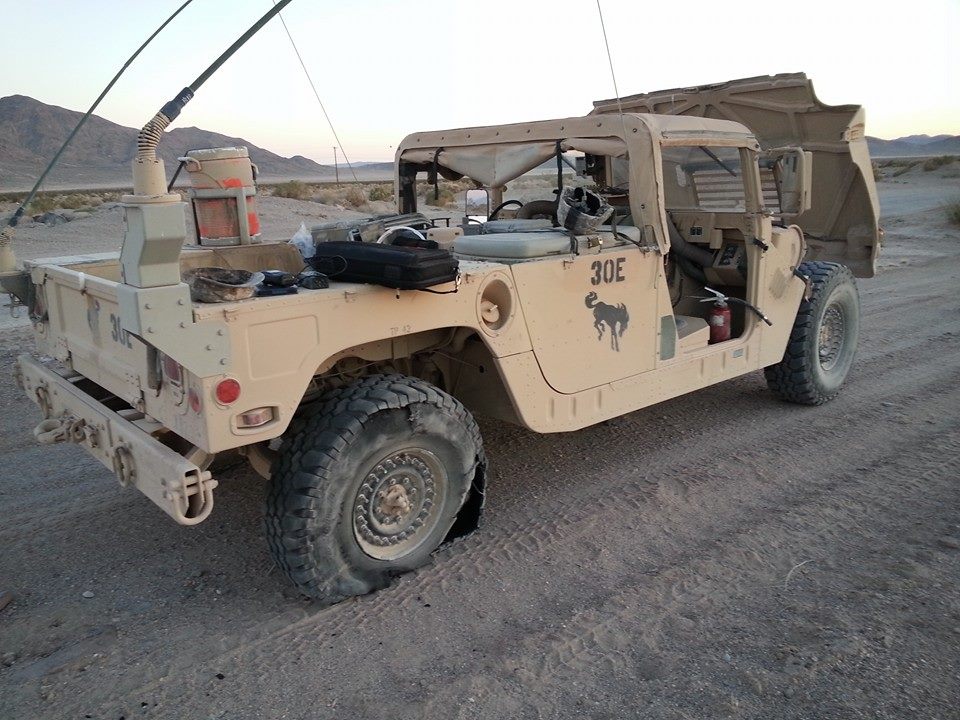As a preface, what follows below is probably a little long and is likely to ruffle a few feathers here and there but such is life. Everything written are generalities based on what I have seen here and do not pertain to any specific person or unit.
In the 3 years, 4 months and 1 day since I arrived on Fort Irwin to being my job as the senior NETOPS trainer (Bronco 30E for anyone who has had the “pleasure” of being an OC/T out here) I can say that my perspective today compared to then has changed significantly. During that time I have worked on 26 rotations with 24 BCTs (2 of them twice), 21 Net Techs (3 of them twice) and way more signal Soldiers than I could possibly count. I have worked with the youngest of warrants (literally 2 weeks after graduating from WOBC all the way to a few CW3s still working at Brigade Net Techs. Without a doubt, I can say that by and large, the warrants that I have worked with have been a pleasure to work with. They are dedicated professionals who want to be great warrants.
Training
This is an old comment and one that we have likely all said before many times ourselves, but as an Army, we absolutely suck at training in a number of ways. Starting from the school house (both warrant, enlisted, and even officers), our Soldiers do not arrive at the unit knowing how to be successful at their jobs. While each of these groups understands the ideas of what they are supposed to do, in many cases they have no idea how to actually execute it or operate the equipment.
Once our Soldiers get to the unit, their training becomes our (well us on their NCOs) responsibility. By and large, I think that we have failed in this responsibility. All too often we have Soldiers who have been at the unit for months and even years who don’t know their job. We as leaders fail to ensure that Soldiers know how to do their job. We don’t take the time to setup group training with our Soldiers and to ensure that their individual teams are able to effectively operate in the field. While this may not be a very big deal at home station where we can easily move from location to location to help troubleshoot a team, when that is not possible (such as at a CTC or when really deployed) the units and operations suffer when the commander loses digital connectivity.
Mentoring Officers
Aside from training our Soldiers, we have the responsibility to train our officers. This training starts with the platoon leaders found within the Signal Company and extends up to the Brigade S6 and even the commander himself. We should work with our officers to ensure that all of our teams are most effectively utilized, that we provide redundancy within the network, that we manage our bandwidth, and that we configure the network to fully support the commander.
By definition, we are supposed to be the Army’s “out of the box” thinkers; problem solvers. Our units face a variety of problems each and every day and while we can’t solve all of them, we can help affect a good number of them, but we can only do that by educating our officers.

Fighting the Current Fight
America’s current fight is murky today at best. We’re out of Iraq (sorta). We’re leaving Afghanistan (kinda). We’re preparing to fight the next war (Iran, Russia, China, maybe somewhere nice like the Bahamas maybe?) The point is, we have no idea what our next fight is going to be, when it’s going to be, or the challenges that we are going to face. When it comes time to fight that fight, we have to be prepared to fight that battle, not the ones that we have fought in the past and are comfortable with. Units training at both NTC and JRTC are generally expected to fight in a decisive action environment which melds both combined arms maneuver and wide area security in a complex and ever changing problem. Unfortunately many times units (and their net techs) come here and try to fight the battle that they are comfortable with (they one that they have been doing for the last 14 years). That is a sure way to lose the fight.
Dedication to Mission
One thing that I can say without a doubt is that each and every warrant officer that I’ve had the chance to work with has truly wanted nothing more than to ensure the success of their unit’s mission. While they all go about it in their own ways and with various degrees of success, we all just want to ensure that the commander is able to go out and kill the other guy and break his stuff. In my own opinion, it is this dedication to mission that makes warrants a unique breed (aside from the fact that we’re technical experts).
Openness to Learning
As the name implies, OC/Ts have three primary responsibilities during a rotation; observe, coach, and train. The NTC of the past was notorious for having OCs (observe/controllers) who did nothing more than sit in a chair in the back of the tent and then take notes just so they could trash you during the AAR. While I am not entirely sure when exactly that changed, I can say that the OC/Ts of today are not that guy. The vast majority of us greatly enjoy the coaching and training parts of our job. For me, I took a lot of joy each month when I got to meet a new net tech and NETOPS team and work with them to make them better by improving their processes and teaching them something that they may not know about. For me, the observe part of the job was a secondary concern and one that was normally accomplished just by being in the tent and working with the team. It was a rare day when observing was my primary focus.
Single Point of Failure
All too often, Chief has become a single point of failure. There are a number of reasons for this; they are a control freak, no NETOPS team to back them up, unknowledgeable NETOPS team, lack of trust, etc. but the results are always the same, things run smoothly until Chief get sick, goes to bed or has to take a leak. It never fails but just when Chief leaves the tent is when something bad will happen and we can either struggle and let the unit suffer until Chief comes back and fixes it, or we can ensure that our team has the knowledge, ability, and authority to take action. While running the network is ultimately our responsibility just like winning the fight is ultimately the Commander’s neither of us have the ability to do it on our own.

Final Thoughts
My 3.5 years at the National Training Center was truly both my most rewarding job ever and the hardest. It was rewarding to work with a new group of warrants, officers, and Soldiers each month and make them better knowing that in many cases they would soon be in a foreign country putting what they learned to work in real life. While I would never claim to reason why someone succeeded for failed, I do believe that I and every other OC/T played an important part in the end. I hope that everyone I had the pleasure of working with realizes that I truly wanted nothing more than to help them succeed, and that I was then and always will be available to help if at all possible.
Having the ability to see how 24 units do something can be an awaking experience. While not every unit does it differently, not every unit does it the same. As an OC/T, you are in a pretty unique position to get a very good idea of what does and doesn’t work in a variety of situations. One of our other jobs aside from working directly with the training units is to let the rest of the force know what exactly we have seen. While we do it primarily through a variety of official means, I personally decided to try and take a little bit more directly route with the creation of this site which I have actually enjoyed doing a lot.
As much as I loved the job (and I truly did), it was always the hardest job I have done. The work schedule absolutely sucks. As and OC/T with back to back rotations, we work 24 days on, 4 days off and then do it all over again. The hours are very long. During a rotation I would normally see my kids for about an hour in the morning when I would wake them up and get them off to school and then not see them again until I did that again the next morning. By the time I would get back in late that night, they would long since been asleep. My wife was essentially a single mother for a large part of my 3.5 years. The location is remote to put it nicely. If you’ve never had the pleasure of coming to Fort Irwin, the base itself is 36 miles just to get to the freeway which is essentially the corner of I-15 and nothing. Barstow is about 45 miles away and Victorville (the closest real “city”) is about 70 miles. On the bright side Las Vegas, Los Angles, and San Diego (where I am from) are all within three hours but again with the work schedule, you rarely get to enjoy them.
The future
As I said above, Signal Chief was created as a way to directly talk to the signal warrants out there and let them know exactly what I was seeing in the field at NTC. Even though I am no longer at NTC, I have every intention of keeping this site alive and well. There are still plenty of trends that I can talk about based on my time at NTC and I fully intend to do so. I would love to see more people get involved with the site through the submission of articles (I am always looking for contributors) but in the mean time I will keep doing what I have been doing for a little over a year now.
I am now sitting at Fort Meade, MD getting ready to report to one of the Army’s relatively new Cyber Protection Teams. Additionally, I put my application in for the recent 170A VTIP. The results haven’t been released yet but regardless, a lot more cyber and a little bit less signal looks to be in my future. Either way, I love signal and hope to bring the best of both worlds here.



I can’t believe you were only there 3.5 years. I look forward to seeing what you see / post about cyber security as you get more involved in that world. I personally was surprised how different the civilian world of networking is from the Army.